What constitutes a ‘document’ and how does it function?
According to the Oxford English Dictionary, the etymological origin is the Latin ‘documentum’, meaning ‘lesson, proof, instance, specimen’. As a verb, it is ‘to prove or support (something) by documentary evidence’, and ‘to provide with documents’. The online version of the OED includes a draft addition, whereby a document (as a noun) is ‘a collection of data in digital form that is considered a single item and typically has a unique filename by which it can be stored, retrieved, or transmitted (as a file, a spreadsheet, or a graphic)’. The current use of the noun ‘document’ is defined as ‘something written, inscribed, etc., which furnishes evidence or information upon any subject, as a manuscript, title-deed, tomb-stone, coin, picture, etc.’ (emphasis added).
Both ‘something’ and that first ‘etc.’ leave ample room for discussion. A document doubts whether it functions as something unique, or as something reproducible. A passport is a document, but a flyer equally so. Moreover, there is a circular reasoning: to document is ‘to provide with documents’. Defining (the functioning of) a document most likely involves ideas of communication, information, evidence, inscriptions, and implies notions of objectivity and neutrality – but the document is neither reducible to one of them, nor is it equal to their sum. It is hard to pinpoint it, as it disperses into and is affected by other fields: it is intrinsically tied to the history of media and to important currents in literature, photography and art; it is linked to epistemic and power structures. However ubiquitous it is, as an often tangible thing in our environment, and as a concept, a document deranges.
the-documents.org continuously gathers documents and provides them with a short textual description, explanation,
or digression, written by multiple authors. In Paper Knowledge, Lisa Gitelman paraphrases ‘documentalist’ Suzanne Briet, stating that ‘an antelope running wild would not be a document, but an antelope taken into a zoo would be one, presumably because it would then be framed – or reframed – as an example, specimen, or instance’. The gathered files are all documents – if they weren’t before publication, they now are. That is what the-documents.org, irreversibly, does. It is a zoo turning an antelope into an ‘antelope’.
As you made your way through the collection,
the-documents.org tracked the entries you viewed.
It documented your path through the website.
As such, the time spent on the-documents.org turned
into this – a new document.
This document was compiled by ____ on 23.02.2022 11:01, printed on ____ and contains 16 documents on _ pages.
(https://the-documents.org/log/23-02-2022-3867/)
the-documents.org is a project created and edited by De Cleene De Cleene; design & development by atelier Haegeman Temmerman.
the-documents.org has been online since 23.05.2021.
- De Cleene De Cleene is Michiel De Cleene and Arnout De Cleene. Together they form a research group that focusses on novel ways of approaching the everyday, by artistic means and from a cultural and critical perspective.
www.decleenedecleene.be / info@decleenedecleene.be - This project was made possible with the support of the Flemish Government and KASK & Conservatorium, the school of arts of HOGENT and Howest. It is part of the research project Documenting Objects, financed by the HOGENT Arts Research Fund.
- Briet, S. Qu’est-ce que la documentation? Paris: Edit, 1951.
- Gitelman, L. Paper Knowledge. Toward a Media History of Documents.
Durham/ London: Duke University Press, 2014. - Oxford English Dictionary Online. Accessed on 13.05.2021.

_44A6588.dng
At 13:26:43 I took a photograph of a concrete building without windows in an industrial zone just south of Brussels.
_44A6590.dng
At 16:46:15 I photographed a succession of office buildings in the same industrial zone.
_44A6589.dng
I must have walked about 1 kilometer between the concrete building without windows and the section of the industrial zone with the offices. At 13:43:49, the camera, safely stored in my backpack, recorded 0.4 seconds of the 20 minutes it took me to get there.
In The Snows of Venice, Alexander Kluge wonders whether he can take the liberty to conjure up what the sky looked like on 31 December 1799, as Schiller made his way to Goethe’s house. He goes on by saying that, historically, there’s a ‘LACK OF SENSORY ATTENTION AT CRUCIAL MOMENTS’.1 There are exceptions, though, like the cameraman that was sent out to document the fireworks on New Year’s Day 2000. The camera was turned on prematurely. The batteries were used up by midnight, but ‘certain gray tones, however, filtered through the cracks of its protective case, conveyed the motion of the walking cameraman, the transportation. The incompletely shut, low-information container was documented exactly […] To this day it provides inexact testimony as to the qualities of the leather of a twenty-first century carrying case and the precise sensitivity to light and dark demonstrated by a twenty-first century recording medium.’2
Lerner, B., Kluge, A. The Snows of Venice. Leipzig: Spector Books, 2018, p. 53
Ibid.

A Sunday stroll near my parents’ house. Along one of the roads between the fields, old poplars have been felled. Young trees have been planted. Each one has a baby blue coloured label, identifying them as Poplar tree, and, more specifically, the ‘Vesten’ cultivar. This cultivar is planted since it is one of the cultivars known for its resistance with regards to bacteria, diseases and insects. The tags on the trunks have staples keeping them together. They’re like bracelets. Come spring, the expanding diameter of the fast growing poplar species’ trunk will tear them apart.
Steenackers, M., Schamp, K., & De Clercq, W. (2018). De INBO variëteiten van populier, een aanwinst voor de Europese populierenteelt. Silva belgica : tijdschrift van de koninklijke belgische bosbouwmaatschappij = bulletin de la société royale forestière de belgique, N°4/2018, 40-47. [5].
https://purews.inbo.be/ws/portalfiles/portal/15044340/Dossier_populier_INBO_KBBM.pdf

The oldest coin in the collection has darkened over time, but upon inspection, the text ‘AD USUM BELGII AUSTR’ (left) and the contours of a (female) head (right) can be discerned. A quick search learns it stems from the middle of the 18th century. The coin was made and used in the Austrian Netherlands, reigned by Maria Theresa, who is the one depicted. My mother recollects finding it in the backyard when she was a kid.
About 40 years later, the euro was introduced. The ringbinder with my mother’s coin collection was taken from the shelf. A dilemma came to the fore: we wondered if we should keep one of each existing Belgian coin and banknote and put them in the binder, alongside Maria Theresa, or if we should exchange them for the new European currency. The decision to keep a coin of five Belgian francs was not difficult to make, but as the amount raised, the answer was increasingly hard to give. This was an assessment of the old currency’s emotional and projected historical value, compared to its current financial worth. It was a decision based on investment principles.
To accentuate the value of the Maria Theresa kronenthaler of 1 liard, I put the coin on a pile of red post-it-notes when photographing it. Coins like these are sold on eBay for prices ranging from 0,70 euros to 16 euros.
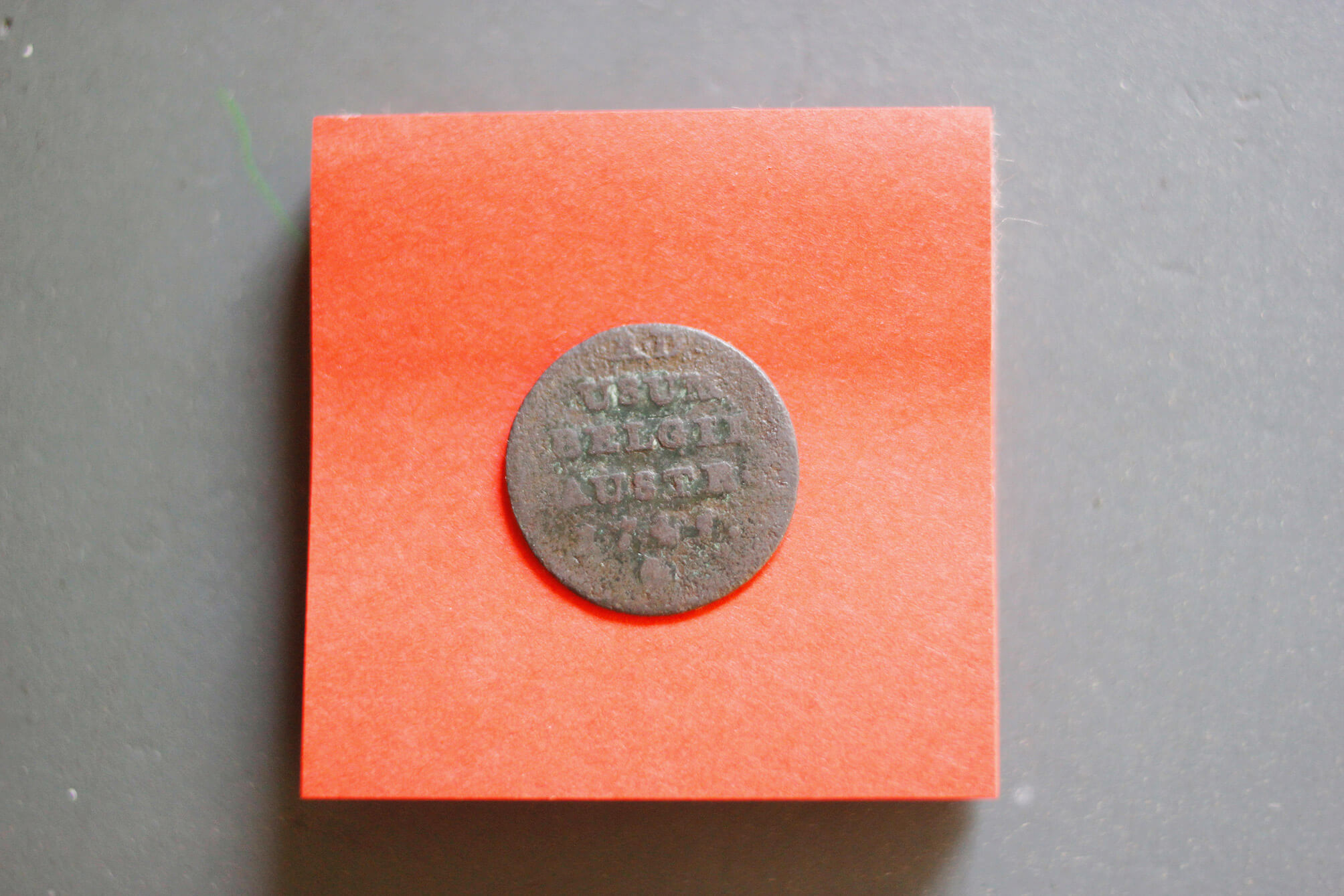

Our one year old’s favourite toy he’s not supposed to play with is the HP Officejet Pro L7590 All-in-one in my office. I have given up on forbidding him to play with it. We have a new game: he brings me one of his other toys, we put it on the flatbed, close the lid – as far as possible –, press the button ‘START COPY – COLOR’ and wait for the print to come out of the machine. When we place the original onto the copy, he laughs. So far we have copied his blue pacifier, his planet-earth-bouncy-ball and his rattling crocodile.

At the copyshop, on a shelf above photocopier 8, the lid of a box of paper serves as the container for ‘forgotten originals’.1
The book being copied: Didi-Huberman, G. La ressemblance par contact. Archéologie, anachronisme et modernité de l’empreinte. Paris: Les Editions de Minuit, 2008.
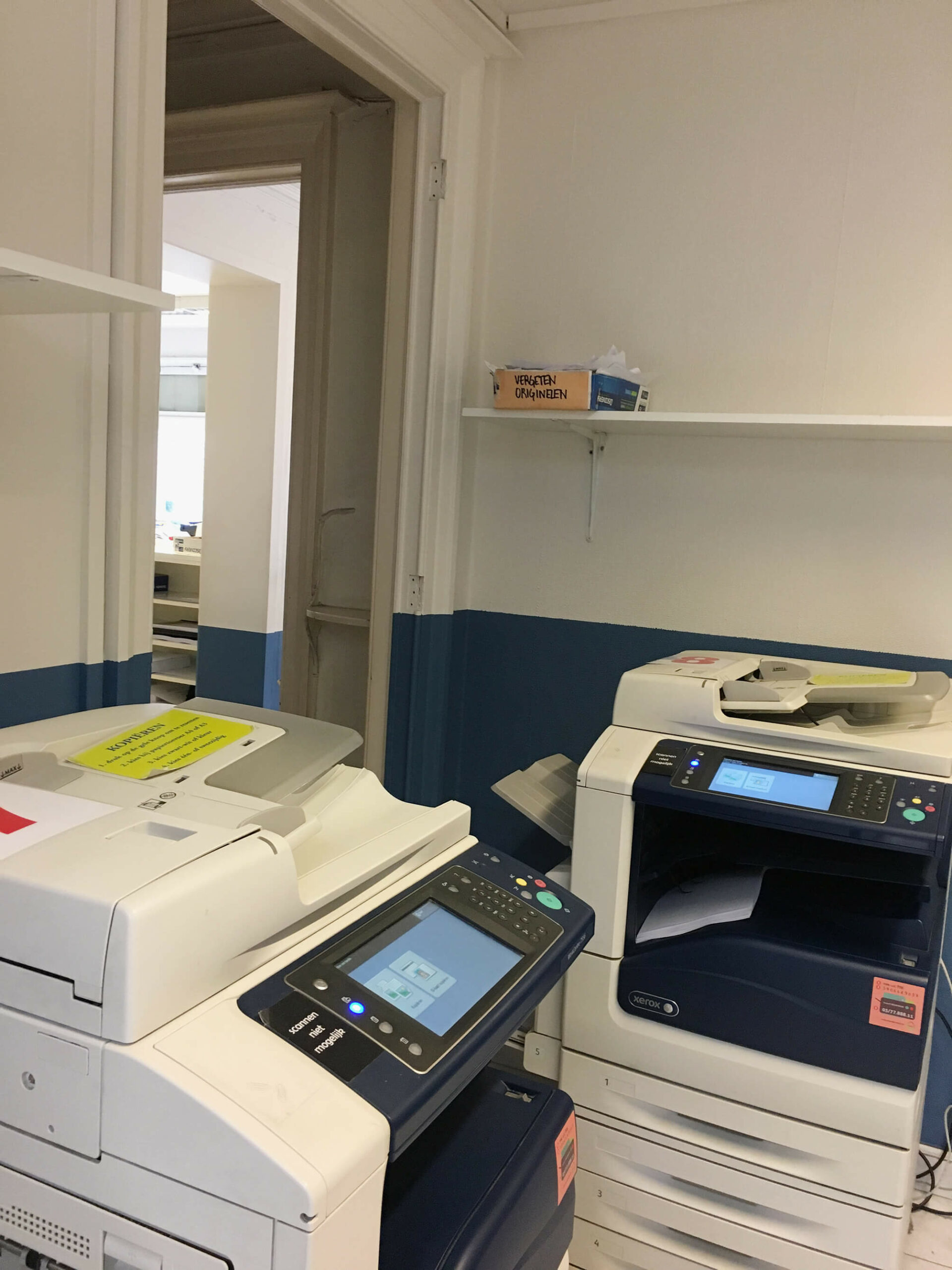
December, 1947. Rapid snowmelt coincides with torrential precipitation. At the bottom of the Thur valley, in Wildenstein, the water gathers.
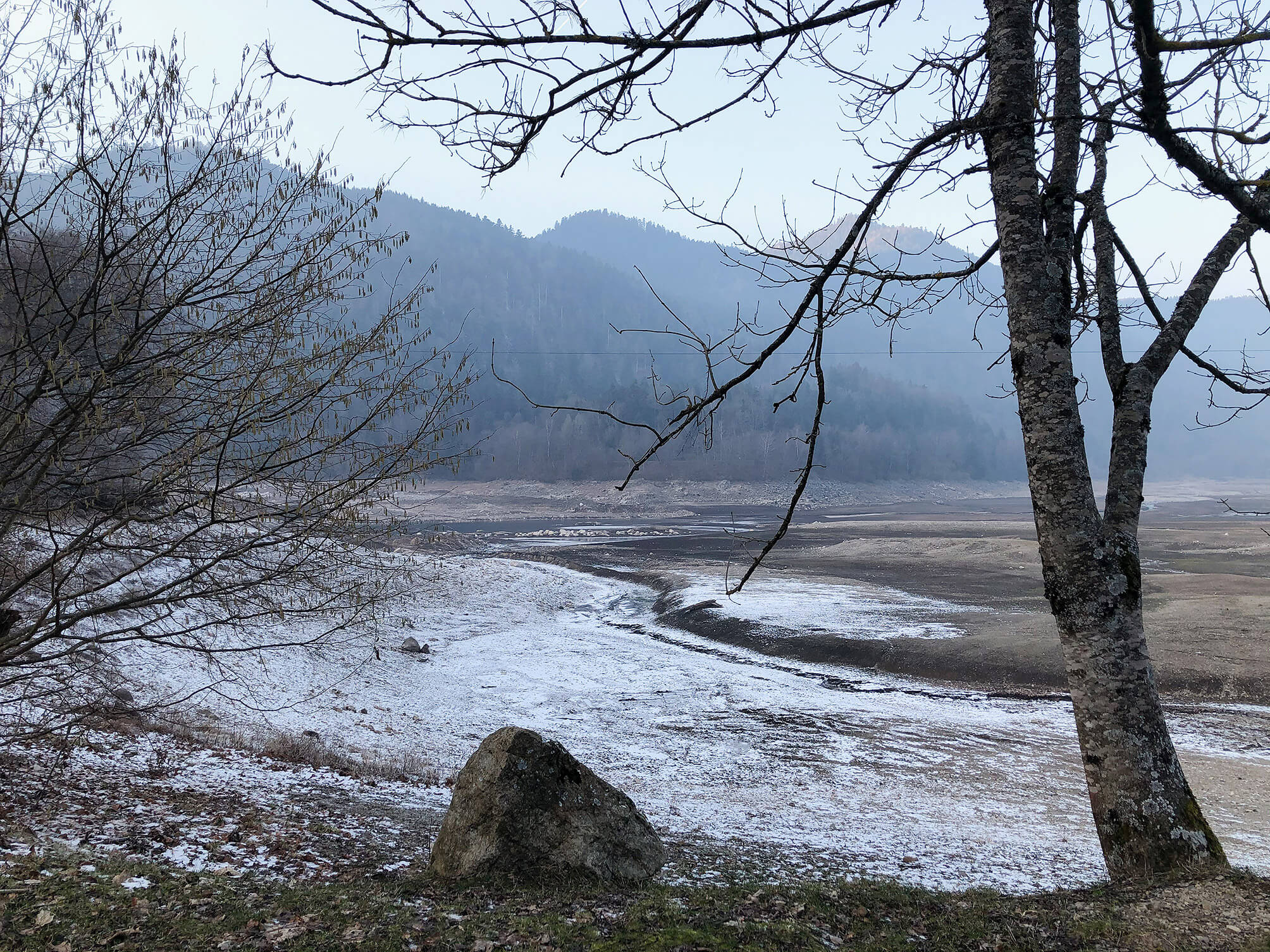
It snows on December 19, but the situation changes on the 22nd with the arrival of an Atlantic low-pressure area, bringing masses of hot and humid air. Thaw follows.
And then, it snows again on December 26 and 27, before the arrival of a new warm front on the same day. A significant and brutal rise in temperature ensues: at Lac Noir, at 920 m, the temperature shoots up from 0,3 °C on December 27 at 7 AM to 7,4 ° C on the 28th at 9 PM.

The river swells and eventually overflows, causing the death of six people and extensive damage: washed away bridges, damaged homes, submerged factories, destroyed food stocks, heavily eroded roads and paths.
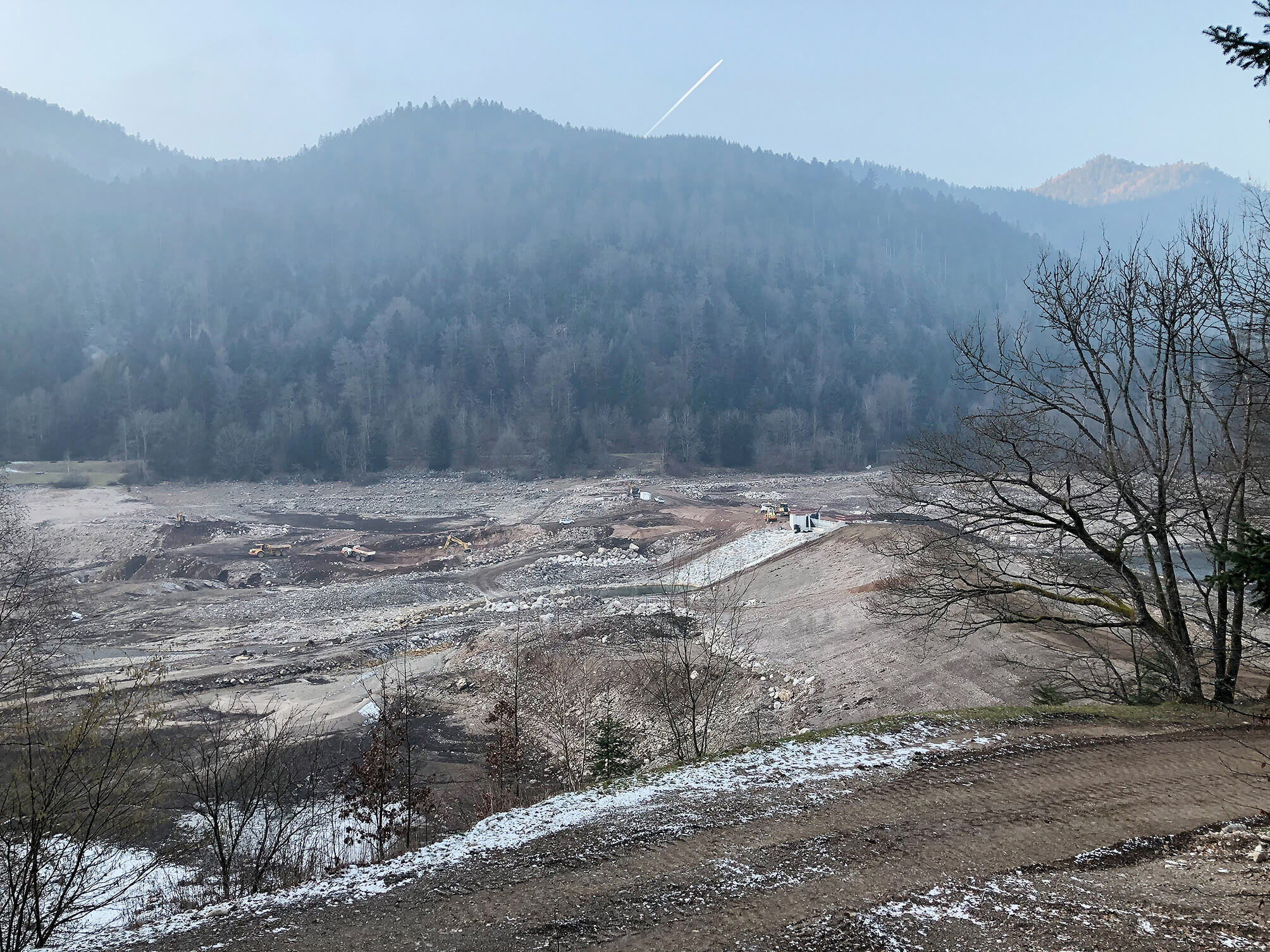
Seven years after the devastating flood, in 1954, the building of the dam is decided upon. Between 1959 and 1963 the infrastructure is built, and the reservoir gets filled with water in 1964 to act as a buffer for sudden floods and to guarantee a flowing Thur through the highly industrialized area downstream.
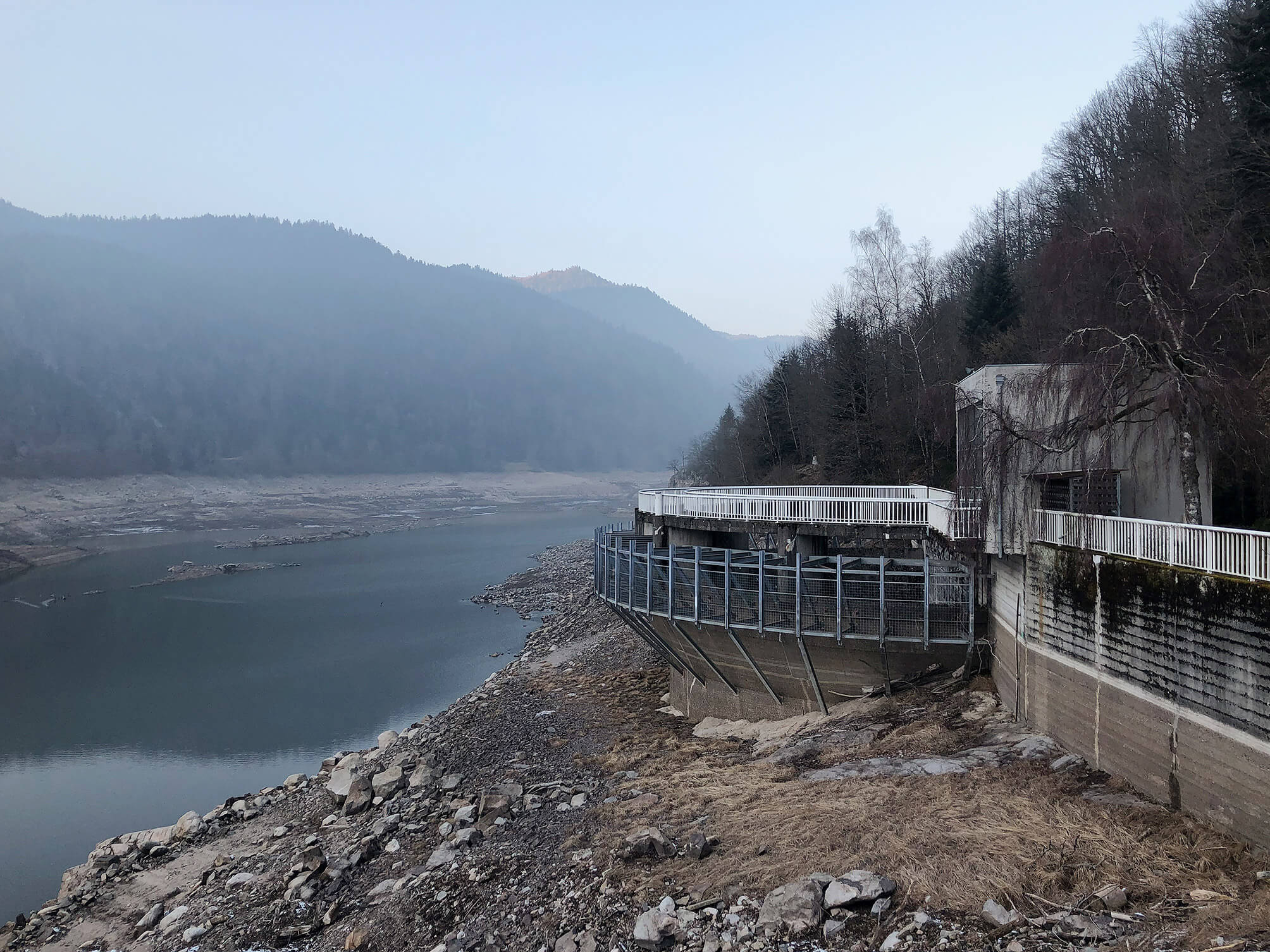
On January 23, 2020 a young couple walks around the drained reservoir of Kruth-Wildenstein.
It’s freezing. They’re expecting their first child within a month.
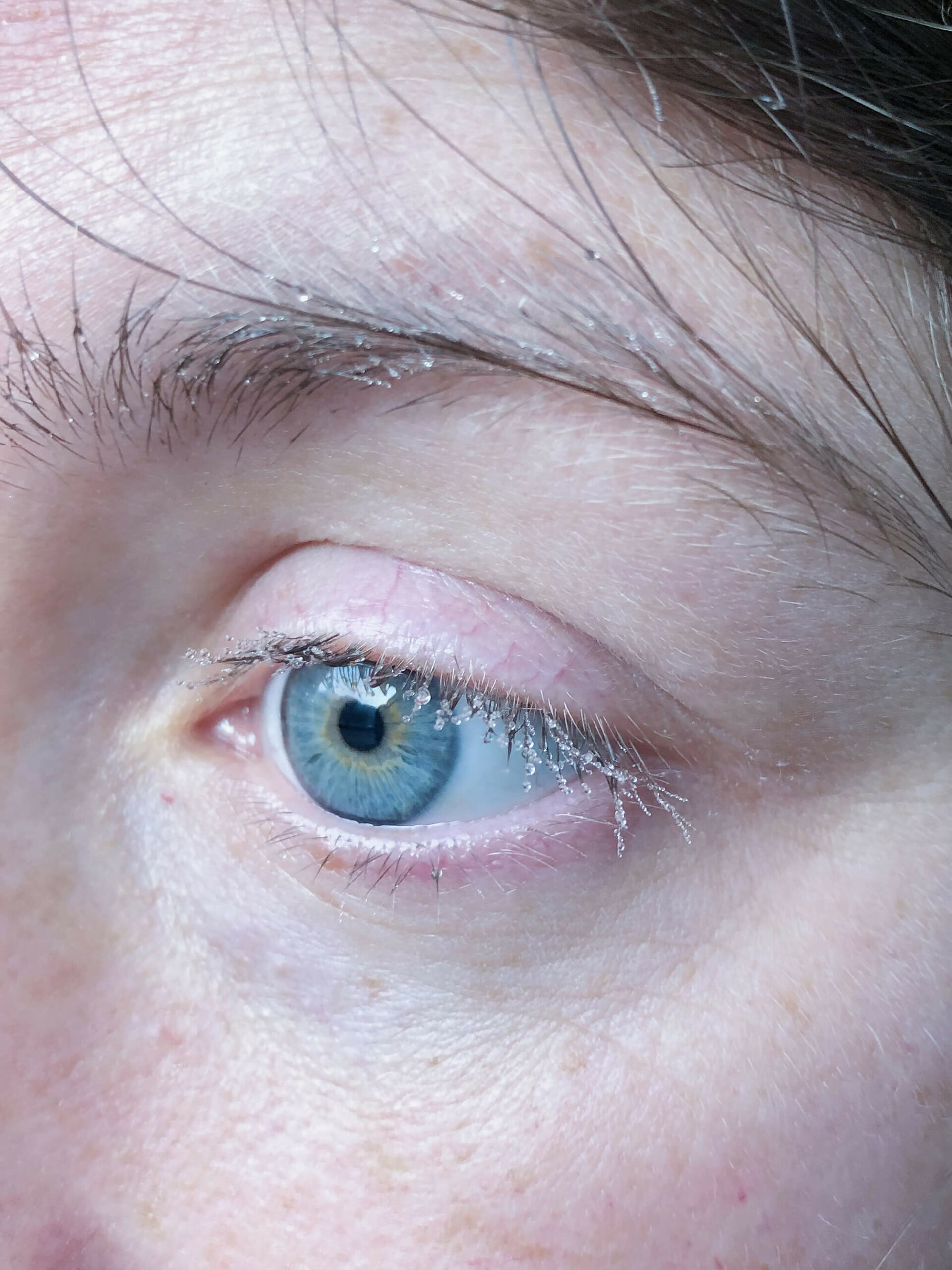
Where once there was twelve million cubic metres of water, excavators and trucks are moving dirt and rocks that have been hidden from sight for 56 years; piling them up into a temporary dam: a batardeau.

What they took for ice that slid down the dam’s slope, appears to be the reason for draining the reservoir: a fissure in the watertight layer. The dam became unreliable.
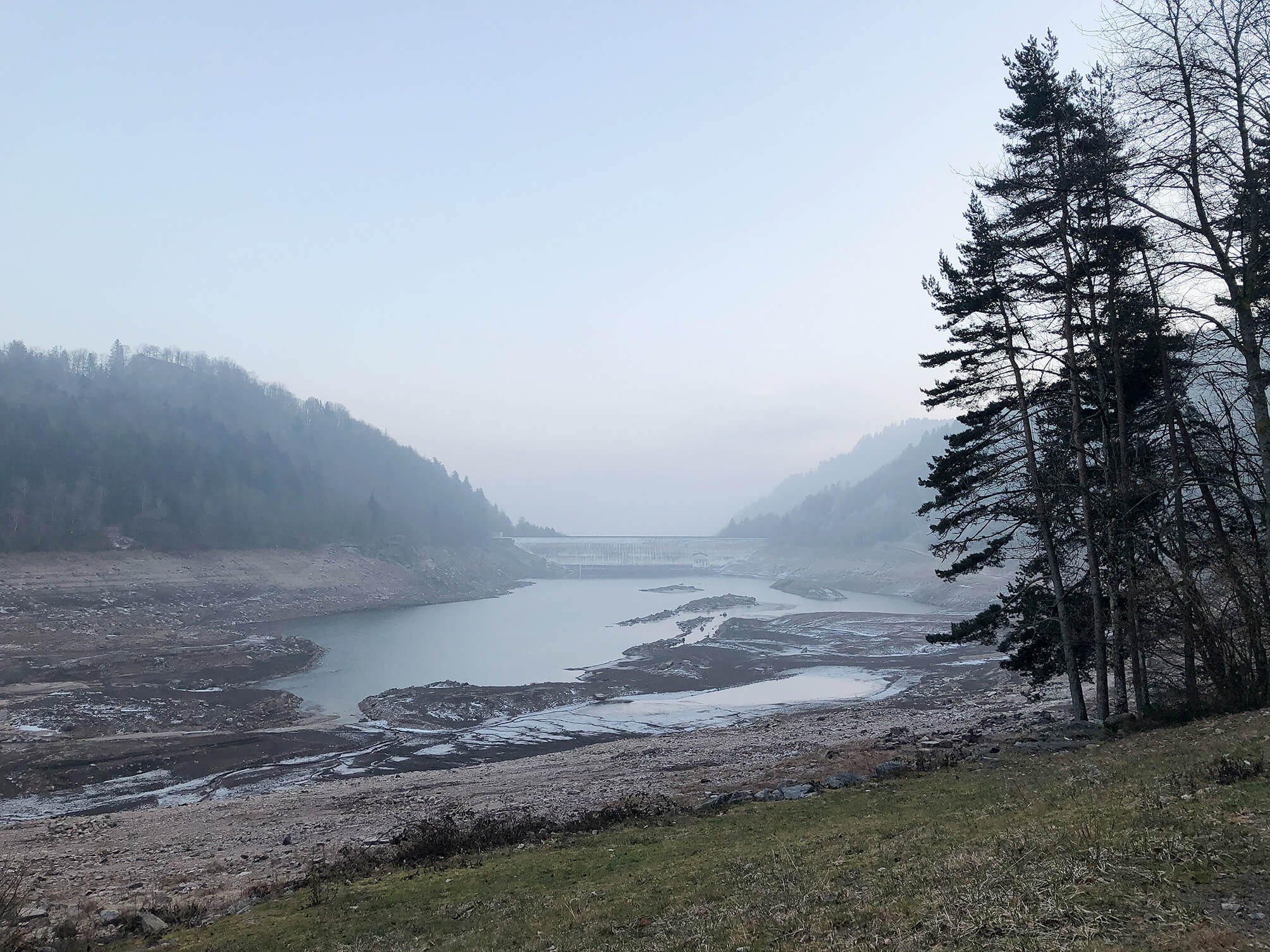
Shortly after crossing the Thur the couple reaches their car. They’re freezing. As the sun sets they drive through the mountainous landscape. The heating hurts their fingers.
The next day, they return, but the scene looks different. It’s warmer. The Thur appears to flow faster.

In the introduction to her book Qu’est-ce que la documentation?, French ‘documentalist’ Suzanne Briet asks what a document is. In a scrappy scan of her book I found online I am highlighting almost everything she writes. Is a star a document? Briet says it isn’t. But the catalogues and photographs of stars are. When I quickly opened the file with Apple’s ‘Preview’ application to check the above paraphrase, the highlighted sentences were illegible.
Briet is cited in Lisa Gitelman’s Paper Knowledge (2014).
Briet, S. Qu’est-ce que la documentation? Paris: Edit, 1951. Online: http://martinetl.free.fr/suzannebriet/questcequeladocumentation/briet.pdf
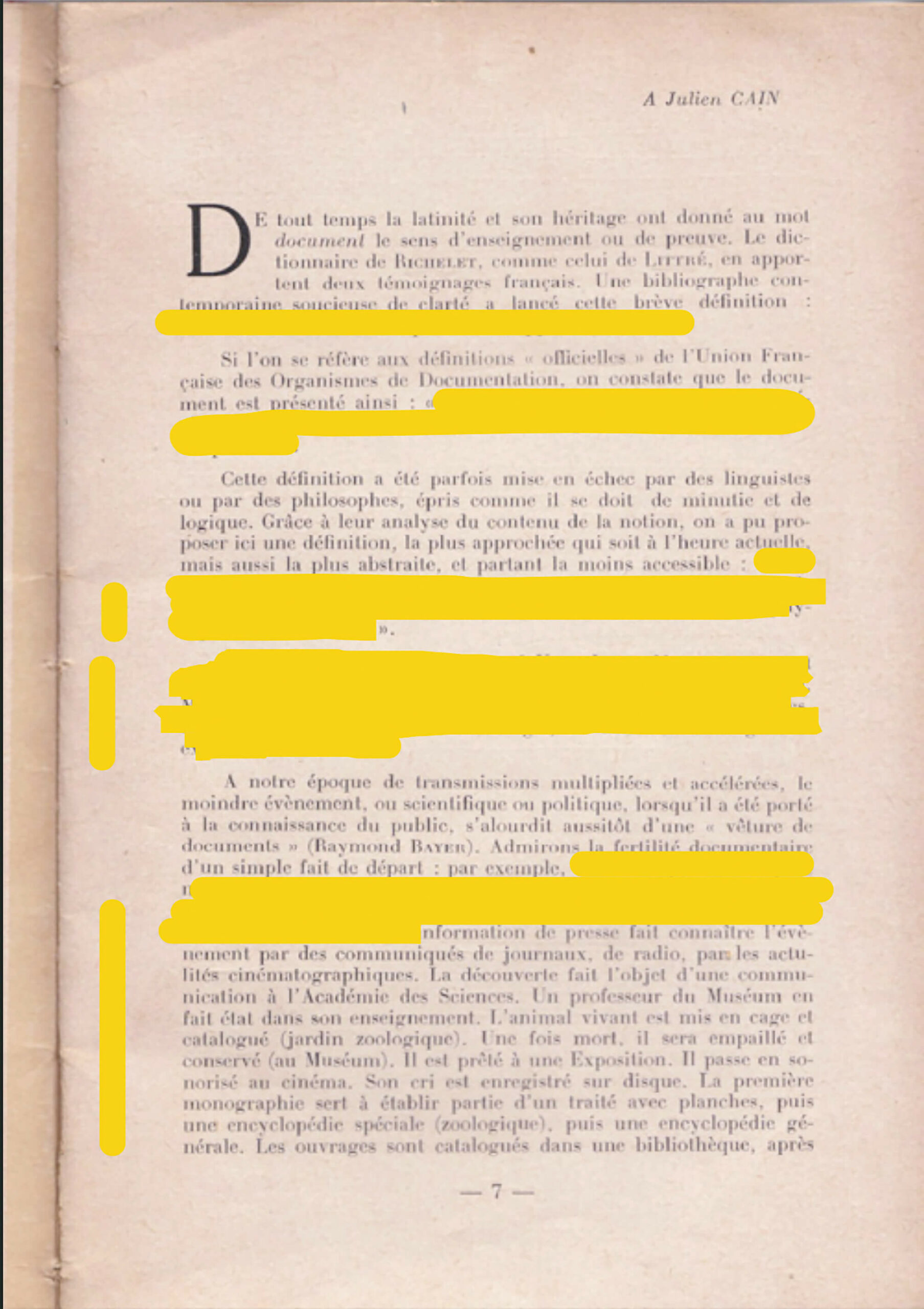
On May 23rd 2021, the planet Saturn appears to be stationary among the surrounding celestial bodies in the night sky.1 This is an attempt to capture this planetary standstill.2
A telescope is set up in a pasture, near a forest edge, pointed to the south-southeast morning sky.3
The standstill is de facto inexistent. It’s the moment when Saturn’s apparent prograde motion turns to a retrograde motion. Since Earth completes its orbit in a shorter period of time than the planets outside its orbit, it periodically overtakes them, like a faster car on a multi-lane highway. When this occurs, the planet being passed will first appear to stop its eastward drift, and then drift back toward the west.
In astrology, Saturn’s retrograde movement is generally a time of karmic rebalancing. Previous bad behavior could be punished. But hard work and responsibility could also be rewarded.
This is the third instalment of De Cleene De Cleene’s Public Observatory. Thanks to Volkssterrenwacht Mira, Grimbergen.
Briet, S. Qu’est-ce que la documentation? Paris: Edit, 1951.
Gittelman, L. Paper Knowledge. Toward a Media History of Documents. Durham/London: Duke University Press, 2014.
Oxford English Dictionary Online. Accessed on 13.05.2021.
‘Saturn Retrograde May 23, 2021 – Karmic Love’, Astrology King. Accessed on 15.05.2021.
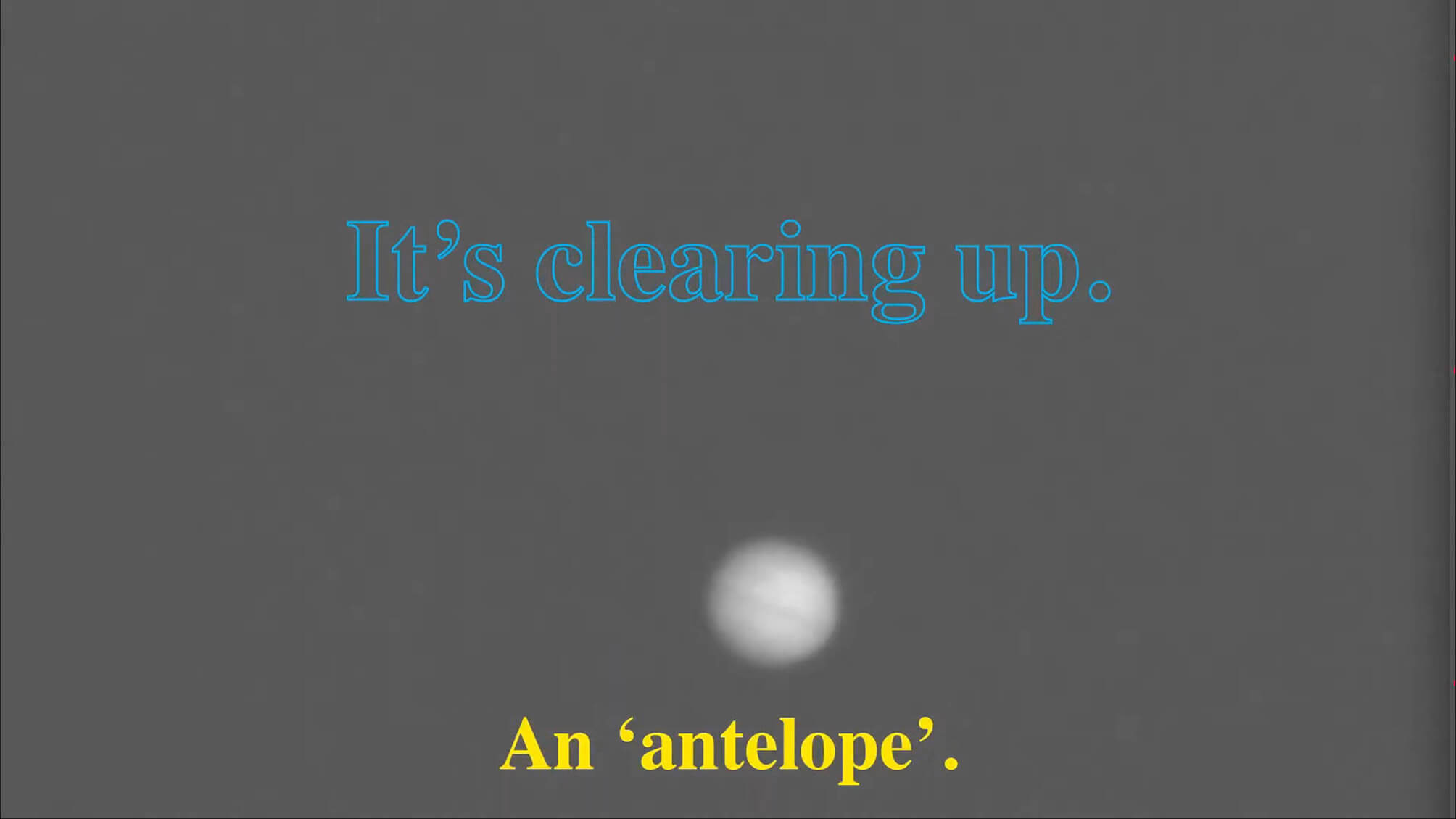
A half a day’s walk from the Fuente Dé teleférico, there are less and less traces of passers-by. The path to Sotres suddenly runs through a lusher green. The fence between two pastures keeps the sheep from crossing and coincides with the border between two regions. A hole in the fence would change the landscape’s hue.
